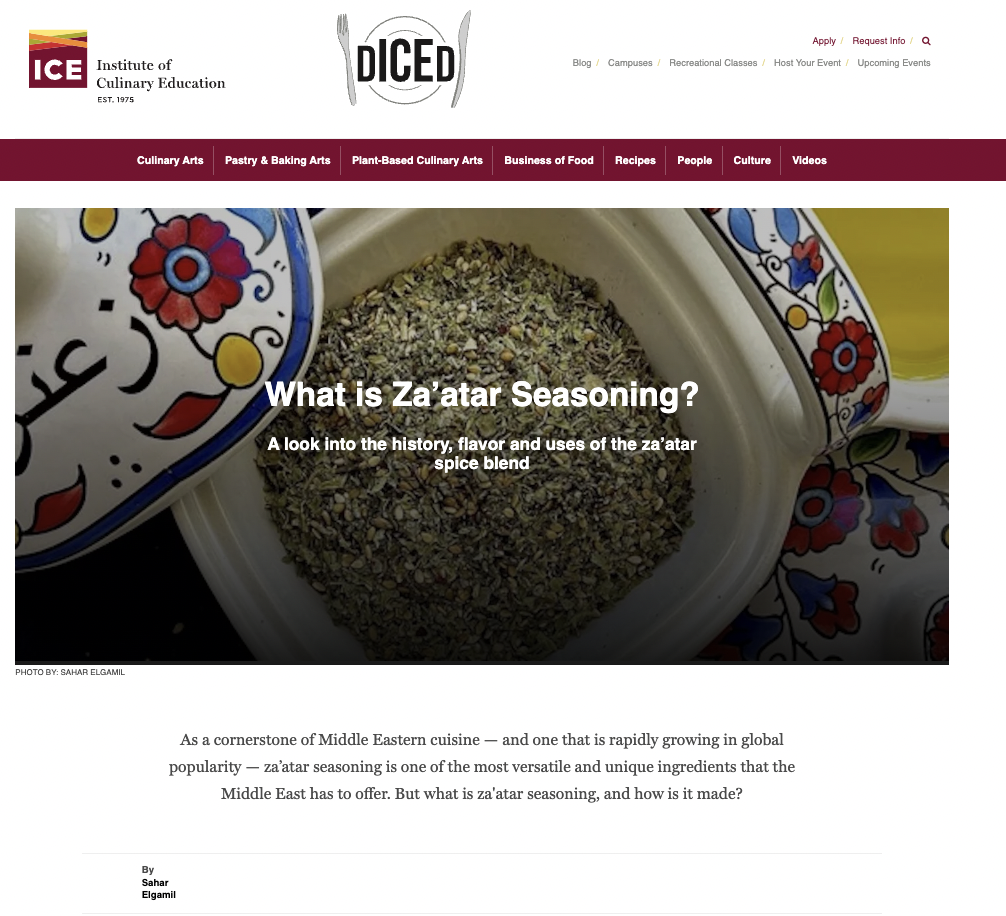Click below to read
Memories of Learning
My first memory of food is in my grandmother’s kitchen. She stands over the stove, carefully dropping sambusas, which she has just spent hours filling and folding, into a big pot of boiling oil. I’m too young to help with that part. Instead, I can sit at the table with my grandfather and help him slice the vegetables we’ll eat on the side. Rather, he slices and I arrange on a plate. I watch him cut cucumbers impossibly thin, paying each one a special attention to detail and respect that I don’t yet understand. I grab two handfuls and transfer them from the cutting board to the plate, and watch as he moves on to tomatoes, then radishes, then ginger. His focus is unbreakable, his movements mechanical and precise. The air is hot and sizzling, entirely permeated by that freshly-fried-dough smell. No one talks. They both focus on their tasks and I sit quietly, observing, cataloging.
Some time later my grandmother calls me over to her, where sambusas pile high on a big platter, oil soaking into the paper towel layer at the bottom. She picks a perfectly golden triangle and bites off a corner to let the steam out. After a few quick blows, she wrapps it in a napkin and hands it to me, cautioning me of its heat. I bite into it, and am met with hot, crispy dough speckled with air bubbles, soft potatoes, juicy peas, slightly crunchy carrots, and a host of warm spices I can’t yet identify as cumin, coriander, nutmeg. I think nothing had ever tasted so delicious.
Fast forward many years later and I am 19, in a professional kitchen, tweezing perfect herbs onto an antelope tartare with a beet reduction, toasted breadcrumbs, and a salt so expensive it would put Morton to shame. It would put me to shame a little too. Everything in that kitchen is fast. So fast that I can’t remember much about my time there—except of course that the crudo gets 50 grams of fish, 25 grams of broth, and 7 shiso leaves—that, I remember.
Somewhere in between my grandmother’s kitchen and seven shiso leaves is a blur of burnt paella, food network nights with my dad, and culinary school. Learning to cook was a combination of self-teaching and formal training. It was precision, speed, trial and error. It was “Chopped” competitions with my siblings and staying up until midnight watching my very normal middle school hyperfixation — some guy on youtube making sushi. It was meeting people whom I still throw dinner parties with, and people whose names I don’t know anymore. It was art and science and math. It was pure perfection, it was utter failure. It was cooking for my family but being too shy to cook for my friends. It was making up recipes and writing them down in my little orange bejeweled notebook. It was annotating cookbooks and recording videos. It was finding out that I didn’t want to work in restaurants anymore. It was finding out what I did want.
Time is marked by the food I’ve made and the food I’ve tried. At times the food I cooked was too fancy, too sterile. Other times it is too illusionary for the sake of the camera. When this happens, I remember my grandmother’s steadfast dedication, my grandfather's quiet focus. I remember the hot kitchen air, the fried-dough smell. I see the pink carpet and the dark wood dining table with the cream lace runner. I taste the simple, soul-nourishing, culture-immortalizing food. The hot sambusa and the cold vegetables. The sting of raw ginger and the soothing wash of cucumber. I see my grandfather bent over the table, slicing vegetables. I see my grandmother standing over the stove, her hands immune to the heat of the fryer-oil. I feel their slow, intentional movements and the love they poured into their food—each bite crafted specifically for their children and grandchildren to savor.
No food tastes like my grandmother’s. No one replicates my grandfather’s strong, silent presence. No formal training or name-brand photoshoot rivals the memory of sitting in my grandmother’s kitchen, learning how to care, how to focus, how to dedicate myself wholeheartedly to something, and how to express love without words. Nothing compares to being in that kitchen, bearing the heat of the air, the oil, the sambusa, and learning how to cook
By Sahar Elgamil

